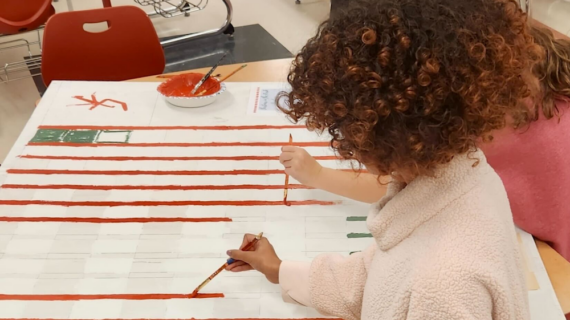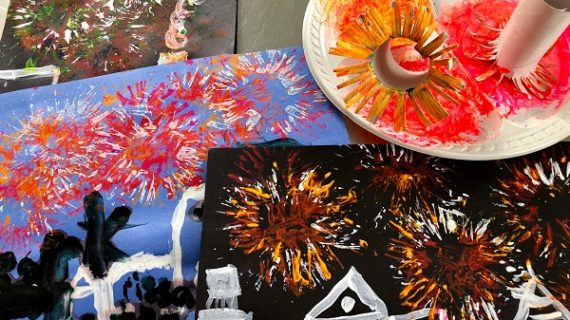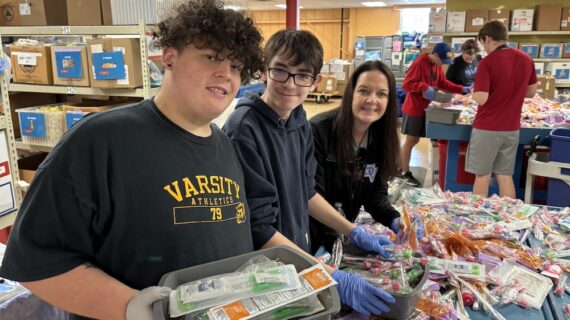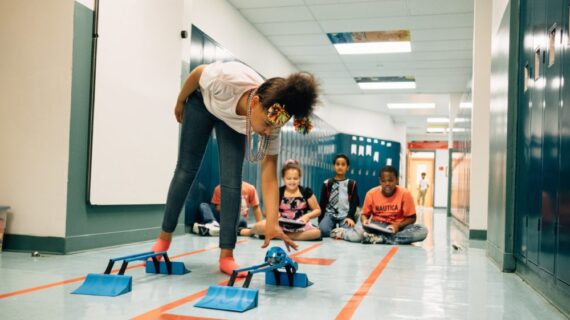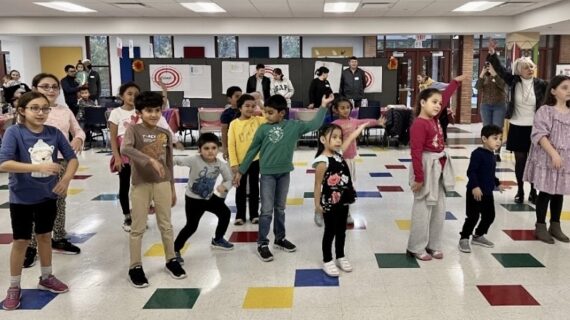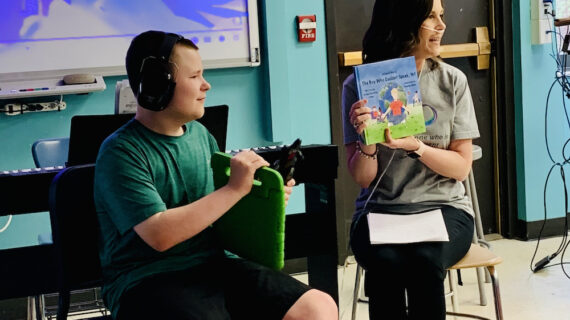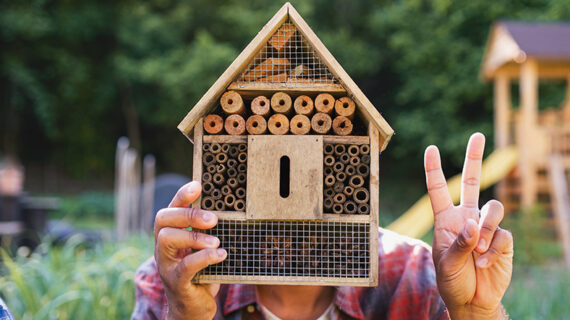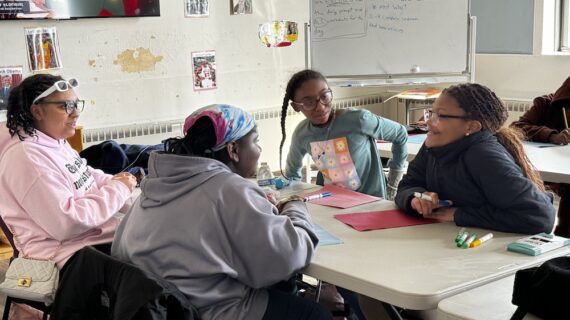
Rain Poetry brings kids’ voices to the streets of Pittsburgh
Photos from Garfield Rain Poetry unveiling by Joe Appel Photography courtesy of PA Humanities.
When rain falls this summer at three spots around the Pittsburgh area, something magical will happen: Haiku poems, written by students from Homewood, Garfield and Northview Heights, will suddenly emerge from the sidewalk.
The students’ creative words will stay visible as long as the sidewalk is wet. Then, when the sun comes out and the sidewalk dries, the words will slowly vanish and remain invisible until the next rainfall.
The visual effect happens thanks to something called “hydrophobic paint,” which waterproofs the spots where it is painted on the sidewalk. But the real magic of the Rain Poetry project from PA Humanities is in the ways it inspires students.
Earlier this spring, teaching artist and poet Karen Howard worked with students at afterschool programs in three neighborhoods to explain how haikus work and help them express themselves through poetry. She also let them know: Your community values your thoughts and your creativity, and we want to hear what you have to say.
“That’s something that I wanted them to hear over and over again – that they had a voice and their voice was important,” Howard says. “Their voices would no longer be hidden.”

The students included:
- Third, fourth and fifth graders who worked with Howard at Assemble in Garfield. Their haikus explored their thoughts about the future. Howard introduced the project to these younger students by telling them that through learning to write haiku, they would be speaking Japanese – which delighted them.
- Seventh, eighth and ninth graders at the YouthPlaces afterschool program in Northview Heights. Their neighborhood is seen by some as a dangerous place, so they wrote about their own perspective of what “Northview Nights” are really like.
- Ninth through twelfth graders at the Homewood-Brushton YMCA wrote about the ideas behind urban legend. This group was already familiar with haiku and other poetry writing, and were the oldest group, so they were able to use more metaphors and figurative language in their poems.
The students were excited to see a connection between poetry and things like music and daily conversation.
“We told them that when you’re listening to music or when you’re talking, you are already creating rhythm and you are already creating a cadence,” Howard says. “And people will listen to you, depending on how you present your speech.”
Howard loved working with all three groups, but she felt a special connection to the students from Northview Heights. She spent three decades teaching in the Pittsburgh Public Schools system, finishing her career at Northview Heights Elementary.
“These are kids who don’t get that much attention,” Howard says. “They have in their minds that, ‘OK, if I can play basketball, if I can play outside sports and stuff like that, I’ll make it. But to do something like this was totally out of their wheelhouse. So to see them come together and put it together, and actually put words to their ‘Northview nights’ was very, very rewarding.”
Here’s how the poem above appears when the sidewalk is fully wet:
We are the four friends
Eat ramen or face tickles
Together, we fly
by 5th graders Lula S., Elise B and Elijah H., and 4th grader Aliana M.
Poems written at Assemble were installed the week of May 6 on a stretch of sidewalk at Nelson Mandela Peace Park and the students were invited to an unveiling celebration on May 8. Two more unveilings are coming up – first in Northview Heights on the path to a playground during the week of May 18, and then at the entrance to the Homewood YMCA during the week of May 22.
Local muralists Max Gonzalez and Shane Pilster designed stencils of the chosen poems and are overseeing the installation process. And along with the sidewalk displays, all of the students will have their poems published in a commemorative book, which will be available later this summer.
PA Humanities launched the first Rain Poetry project with students in Philadelphia last year. It began in Pittsburgh this spring and is now underway in Johnstown. Reading, Pa., is likely up next, making this a statewide effort.
One priority is that the poems are painted in places where children spend time, says Dawn Frisby Byers, PA Humanities’ senior director of content and engagement.
Literacy and learning happen everywhere, says Byers, and poetry is the easiest form of literacy to replicate outside of a classroom. “So we saw it as an opportunity to combine this literacy effort, a love of learning, and creative placemaking in communities, as all rolled up into one. That’s how Rain Poetry began.”





